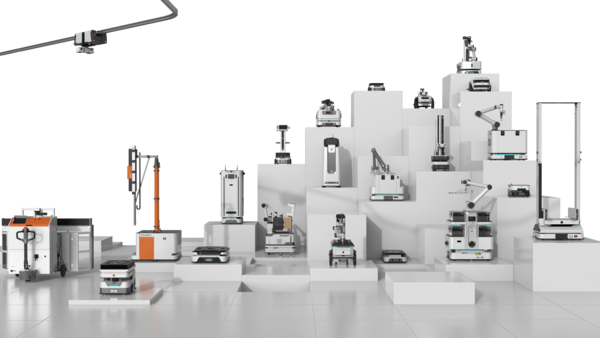© © 2025 Copyright © Youibot Robotics Co., Ltd. All rights reserved.SitemapPrivacy Policy
Robots and artificial intelligence are two concepts that seem to be used interchangeably, but they are different. Robots are physical machines while artificial intelligence is a software technology. Today's robots often incorporate AI technologies like machine learning, computer vision, and natural language processing, enabling them to perform tasks more efficiently. In this article, we will explore the area where robotics and AI meet and discuss how these two technologies work together.
AI-driven robots have a wide range of sensors added to them, including visual devices such as 2D/3D cameras, vibration sensors, proximity sensors, accelerometers, and other environmental sensors, providing them with real-time sensory information that can be processed and acted upon- over time. When combined with artificial intelligence, robots can help businesses organize for innovation and transform their operations. The most popular categories of AI robots used today are autonomous mobile robots.

One of the key benefits of using AI in autonomous mobile robots (AMRs) is its ability to process large amounts of data from various sources in real time. For example, 3D cameras are capable of capturing images of a robot's environment, which can help it navigate through complex environments more effectively than traditional 2D cameras. LiDAR sensors, on the other hand, emit laser pulses to create a precise map of the robot's surroundings by measuring the time it takes for the pulses to bounce back to the sensor. This technology provides accurate depth perception, making it easier for the robot to avoid obstacles and navigate through narrow spaces.
Once data has been collected and processed from the sensors on the AMR, the next step is to analyze the information in order to understand the robot's environment and objectives. Artificial intelligence (AI) plays a crucial role in this process by using machine learning algorithms to identify patterns in the data and provide insights into how the robot should behave.
Through AI analysis, the AMR can gain a deeper understanding of its surroundings and determine the best way to achieve its goals. For example, if an AMR is tasked with transporting goods from one location to another, AI can help it identify the most efficient route to take, taking into account factors such as traffic patterns and obstacles in the environment.
AI can also help the AMR adjust its actions in real-time to maximize performance. By continuously analyzing data from the sensors, the AI system can quickly recognize changes in the environment and adapt the robot's behavior accordingly. If, for instance, the AMR encounters an obstacle while navigating through a warehouse, the AI system can use predictive analytics to quickly determine the best way around the obstacle, minimizing delays and maximizing productivity.
The integration of artificial intelligence into robotics has opened up new possibilities for intelligent machines that can assist humans in various ways. Today, AI-driven robots are widely used in various industries, and their capabilities continue to expand with advances in technology.
If you're interested in learning more about the role of artificial intelligence in autonomous mobile robots or want to explore the possibilities of implementing these technologies in your business, contact us today. Let's work together to discover how AI and robotics can transform your operations.
By continuing to use the site you agree to our privacy policy Terms and Conditions.